#charlotte grimke
Text
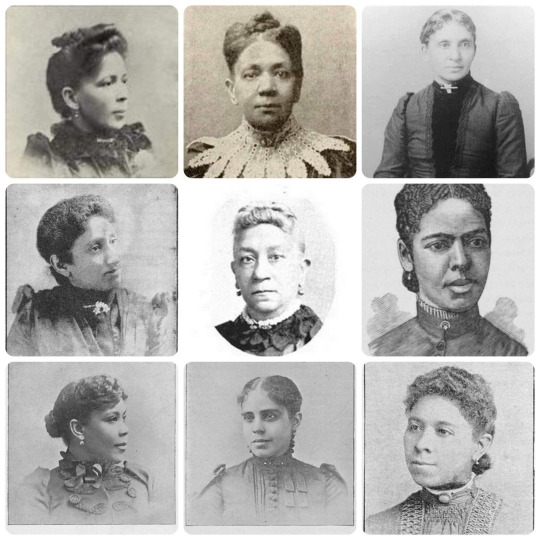
Nine trailblazing women from Monroe A. Major’s 1883 book, “Noted Negro Women Their Triumphs, and Activities.” These women believed in education and became teachers, journalists, and leaders. First row: Della Irving Hayden (1851-1924), was born a slave, graduated from what is now known as HamptonUniversity in 1877. Founded Franklin Normal and Industrial Institute in Virginia in 1904; Fannie Jackson Coppin (1837-1913), born a slave, determined to get an education at Rhode Island State Normal, went to OberlinCollege. Taught Latin, Greek, & math at the Institute for Colored Youth in Philadelphia; Charlotte Forten Grimke (1837-1914), grew up in a prominent abolitionist free black family. Grimke went south to educate boys and girls in South Carolina; Second row: Julia Ringwood Coston, a journalist from Cleveland, Ohio, and editor of Ringwood’s Afro-American Journal of Fashion; Sarah Jane Woodson Early (1825-1907), was born to free parents in Chillicothe, Ohio, enrolled at Oberlin college and graduated in 1856 with a bachelor’s degree to teach English and Latin, taught at WilberforceUniversity; Lucy Wilmot Smith (1861-1889), a writer, educator, historian, editor, suffragist, and journalist. In 1884 became a journalist for the American Baptist, later became its editor; Third row: Rosa D. Bowser (1859-1941), first black teacher hired in Richmond, Virginia, she was a correspondent for The Women’s Era; Mary V. Cook Parish (1862-1945), professor at Kentucky Baptist College, journalist for The American Baptist, editor of Our Women and Children; Frankie E. Harris Wasson (1850-1933), her parents were involved in the UndergroundRailroad, graduated from Oberlin College in 1870, taught for 54 years, was a principal, published a book of poetry in 1886.
35 notes
·
View notes
Text
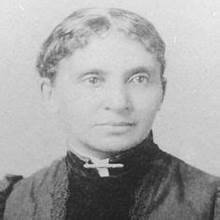
Alredered Remembers African-American diarist, poet, and essayist Charlotte Lottie Forten, on her birthday.
"Hatred of oppression seems to me so blended with hatred of the oppressor that I cannot separate them. I feel that no other injury could be so hard to bear, so very very hard to forgive, as that inflicted by cruel oppression and prejudice."
-Charlotte Forten Grimke
1 note
·
View note
Text
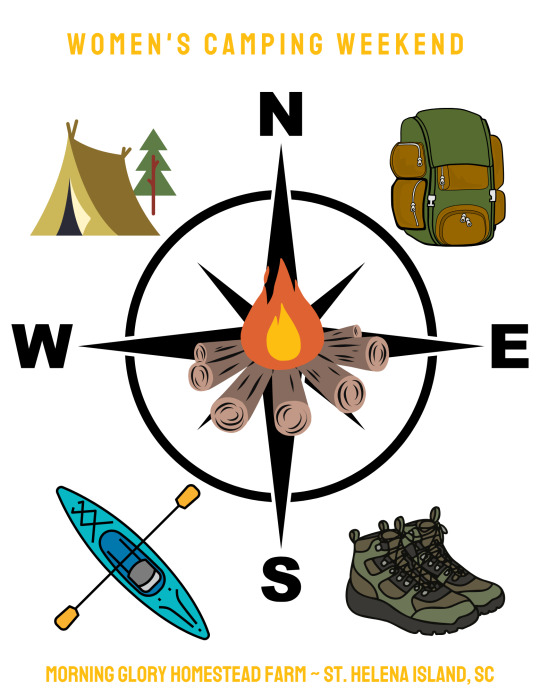
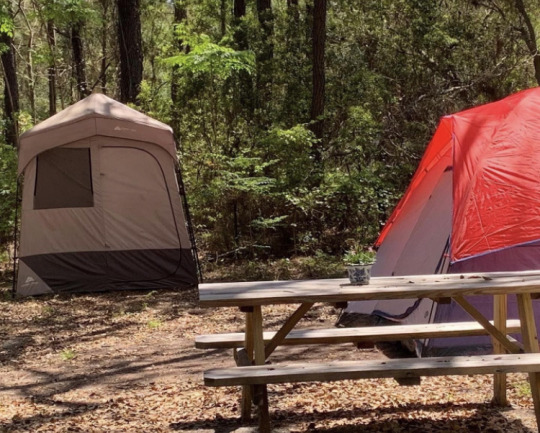
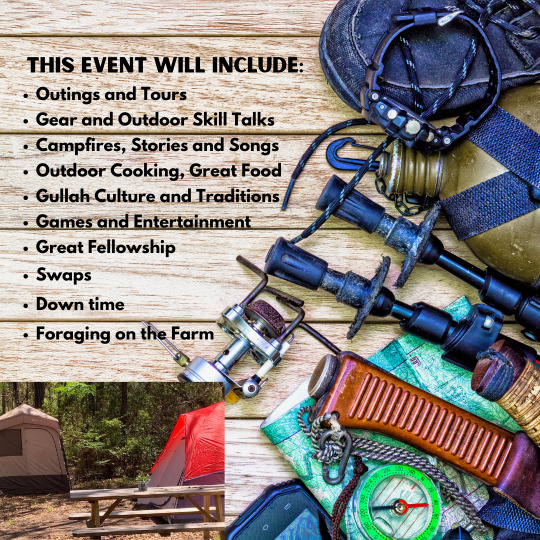
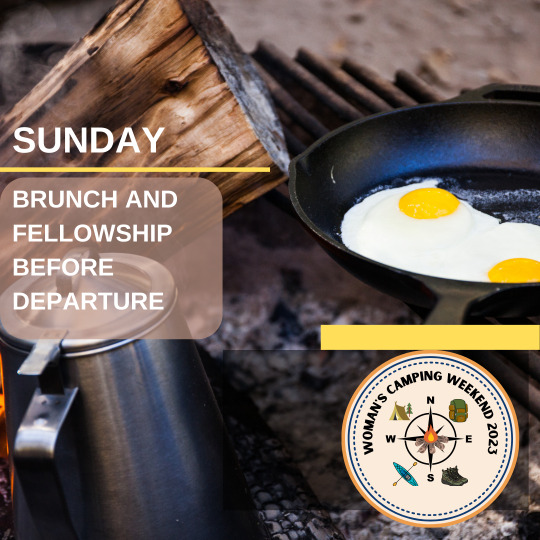


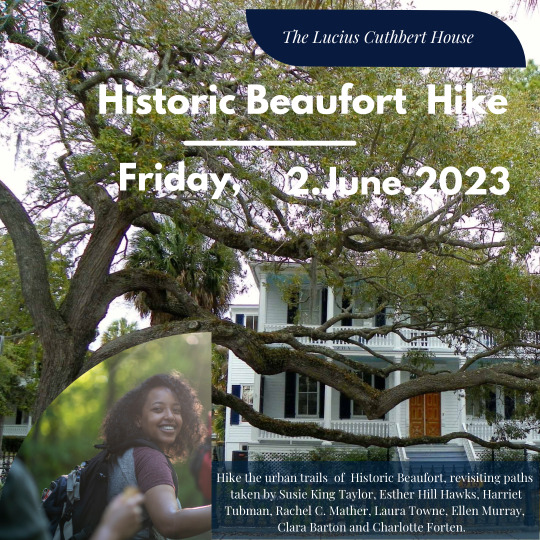

The Women’s Camping Weekend commemorates the anniversary of the Combahee Ferry Raid. “On June 2, 1863, Harriet Tubman, under the command of Union Colonel James Montgomery, became the first woman to lead a major military operation in the United States when she and 150 African American Union soldiers rescued more than 700 slaves in the Combahee Ferry Raid during the Civil War.” This weekend event is designed for women to experience nature and outdoor recreation with like-minded ladies in a non-competitive environment. It will also serve as a reminder of the women who served in the Beaufort District during the Civil War and the Reconstruction Era to aid the war effort, abolish slavery, support freed and contraband Blacks and as teachers, nurses, laundresses, and cooks. These women include Harriet Tubman abolitionist, conductor of the Underground RailRoad, Union Army Civilian attache’, Dr. Esther Hill Hawks medical doctor, teacher, Rachel C. Mather founder of the Mather School for Negro Girls, Susie Baker King teacher, laundress, nurse, Charlotte Forten Grimke’ teacher, journalist, hospital volunteer, Laura M. Towne and Ellen Murray were founders of the Penn School.
The Women’s Camping Weekend event provides an opportunity for women to become more comfortable in the outdoors, participate in recreational activities, and discover ways to protect and create more natural spaces. Hiking, kayaking and a wildlife field trip are a few of the activities for the weekend.
#camping#sclowcountry#sthelenaislandsc#BeaufortSC#SC History#Harriet Tubman#nature hikes#bird watching#nature
0 notes
Text
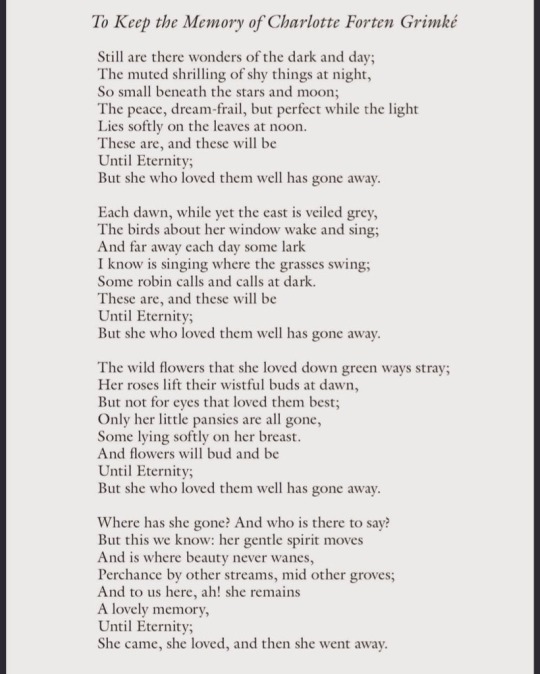
To Keep the Memory of Charlotte Forten Grimké ~ Angelina Weld Grimké
#alliwanttodoiscollectpoetry#poem#poems#poet#poetry#collection#poets#tumblr poetry#collect#anthology#poets of color#poetess#angelina weld grimke#grimke#to the memory of Charlotte Forten Grimké#memory#eternity#dead#death#poetry corner#poetry blog
6 notes
·
View notes
Text

Women’s rights activists like Elizabeth Cady Stanton and Betsy Ross, who championed gender equity, didn’t feel the same about race. While many white suffragists worked to help eradicate the institution of slavery, they did not work to ensure that former slaves would have citizenship or voting rights.
“Black women were not accounted for in white women’s push for suffrage. Their fight wasn’t about women writ large. It was about white women obtaining power – the same power as their husbands, black women and black men be damned,” says Howard University Assistant Professor Jennifer D. Williams.
Stanton and Ross and other high-profile leaders in the movement didn’t support the 14th and 15th amendments, which granted former slaves citizenship rights and gave black men voting rights. Given this chasm, a black women’s suffrage movement developed alongside the mainstream movement.
“There was a concerted effort by white women suffragists to create boundaries towards black women working in the movement,” says historian and author Michelle Duster. “White women were more concerned with having the same power as their husbands, while black women saw the vote as a means to improving their conditions.”
Some black suffragists you should know
Sojourner Truth (About 1797-1883)
Born into slavery as Isabella Baumfree, she gained her freedom in the 1820s and supported herself through menial jobs and selling a book written by Olive Gilbert, “Narrative of Sojourner Truth: a Northern Slave, Emancipated from Bodily Servitude by the State of New York in 1828. At the 1851 Women’s Rights Convention held in Akron, Ohio, Sojourner Truth delivered what is now recognized as one of the most famous abolitionist and women’s rights speeches in American history, “Ain’t I a Woman?” In 1872, Truth was turned away when trying to vote in the U.S. presidential election in Battle Creek, Michigan.
Harriet Tubman (About 1820-1913)
Tubman, whose birth name was Araminta Ross, is commonly known as an emancipator who led hundreds of slaves to freedom along the underground railroad. She also was a staunch supporter of women’s suffrage, giving speeches about her experiences as a woman slave at various anti-slavery conventions, out of which the voting rights movement emerged.
Coralie Franklin Cook (1861-1942)
Cook founded the National Association of Colored Women and was known as a committed suffragist. In 1915, she published “Votes for Mothers” in the NAACP magazine The Crisis discussing the challenges of being a mother and why women need the vote.
Angelina Welde Grimke (1880-1958)
A well-known feminist in the District of Columbia, Grimke was a journalist, playwright, poet, lesbian, suffragist and teacher. Grimke wrote for several journals such as Margaret Sanger’s Birth Control Review. Educated at Wellesley College, Grimke’s literary works exposed her ideas about the pain and violence in black women’s lives, and her rejection of the double standards imposed on women.
Charlotta (Lottie) Rollin (1849-unknown)
After the Civil War, the woman suffrage movement split into two separate organizations: the National Woman Suffrage Association (NWSA) —a more radical group and the more mainstream American Woman Suffrage Association (AWSA). Rollin joined the AWSA. During Reconstruction, Rollin became active in South Carolina politics working for congressman Robert Brown Elliott. Rollin spoke on the floor of the South Carolina House of Representatives in 1869 in support of universal suffrage. By 1870, Rollin chaired the founding meeting of the South Carolina Woman’s Rights Association and was elected secretary. Several of Rollin’s family members — sisters Frances, Kate and Louisa also were active in promoting women’s suffrage at both the state and national levels.
Mary Ann Shad Cary (1823-1893)
Cary was perhaps the first black suffragist to form a suffrage association. During the 1850s, she was a leader and spokesperson among the African American refugees who fled to Canada after passage of the Fugitive Slave Act in 1850. In 1853, she founded the Provincial Freeman, a newspaper dedicated to the interests of Blacks in Canada. Cary spoke at the 1878 convention of the NWSA applying the principles of the 14th and 15th Amendments to women and men. She called for an amendment to strike the word “male” from the Constitution. In 1871, Cary unsuccessfully tried to vote in Washington, but she and 63 other women prevailed upon officials to sign affidavits attesting that women had tried to vote. In 1880, she organized the Colored Women’s Progressive Franchise Association, which promoted suffrage and educated people on finance and politics.
Gertrude Bustill Mossell (1855–1948)
A journalist, Mossell, wrote a women’s column in T. Thomas Fortune’s newspaper, The New York Freeman. Her first article, “Woman Suffrage” published in 1885, encouraged women to read suffrage history and articles on women’s rights.
Ida B. Wells (1862-1931)
Wells, who worked with white suffragists in Illinois, founded the Alpha Suffrage Club, the first suffrage group for black women. They canvassed neighborhoods and educated people on causes and candidates helping to elect Chicago’s first black alderman. In 1913, Wells and some white activists from the Illinois delegation traveled to Washington to participate in the historic suffrage parade where women gathered to call for a constitutional amendment guaranteeing women the right to vote. Black suffragists were initially rejected from the event. Wells and other suffragists including white suffragists like Stanton wrote letters asking the parade to allow black women to participate. Event leaders acquiesced, requiring black suffragists to march in the back of the parade to assuage the feelings of white women in the movement who did not want them there. Despite the conditions, black suffragists participated. However, Wells refused to march at the back.
Mary Church Terrell (1863-1954)
In 1896, Terrell and fellow activists founded the National Association of Colored Women and Terrell served as the association’s first president. After the passage of the 19th Amendment, Terrell turned her attention to civil rights.
Anna Julia Cooper (1858-1964)
Anna Julia Cooper was a prominent African American scholar and a strong supporter of suffrage through her teaching, writings and speeches. Cooper worked to convince black women that they required the ballot to counter the belief that ‘black men’s’ experiences and needs were the same as theirs.
Rosa Parks (1913-2005)
Known as the “Mother of the Civil Rights Movement,” because of her role in the Montgomery Bus Boycott, Parks continued to work for civil rights which included voting rights. Parks served as an aide to Congressman John Conyers and used her platform to discuss many issues, including voting rights.
Charlotte Vandine Forten (1785 –1884)
An abolitionist and suffragist, Forten came to Washington in the late 1870’s with her husband, James Forten, a wealthy sail maker and abolitionist. She was a founder and member of the interracial Philadelphia Female Anti-Slavery Society, many of whose members became active in the women’s rights movement.
Harriet Forten Purvis (1810 – 1875)
Daughter of wealthy sailmaker and abolitionist reformer James Forten and Charlotte Forten, Forten Purvis and her sisters were founding members of the Philadelphia Female Anti-Slavery Society, and members of the American Equal Rights Association, where Harriet served as a member of the executive committee. Affluent and educated, the sisters helped lay the groundwork for the first National Woman’s Rights Convention in October 1854 and helped organize the Philadelphia Suffrage Association in 1866.
Margaretta Forten (1806 -1875)
Forten was an educator and abolitionist. She and her mother, Charlotte Forten and her sister, Harriet, were founders and members of the interracial Philadelphia Female Anti-Slavery Society.
Harriet “Hattie” Purvis (1810-1875)
A niece of the Forten family of reformers, Purvis was active in the Pennsylvania Woman Suffrage Association and a member of their executive committee. Between 1883 and 1900, she served as a delegate to the National Woman Suffrage Association. She also served as Superintendent of Work among Colored People for the Woman’s Christian Temperance Union, championing reforms.
Sarah Remond (1826-1887)
Remond was an antislavery lecturer and physician. The Remonds were a noted abolitionist family, well known in antislavery circles and, as a child, Sarah had attended abolitionist meetings. She was an activist in the Salem and Massachusetts Antislavery Societies, and a member of the American Equal Rights Association, where she served as a guest lecturer, and toured the Northeast campaigning for universal suffrage. Discouraged by the split in the women’s suffrage movement after the Civil War, she left the United States, becoming an expatriate in Florence, Italy, in 1866, where she studied medicine.
Frances Ellen Watkins Harper (1825-1911)
Frances Ellen Watkins Harper was an early abolitionist and women’s suffrage leader. She was one of the few African American women present at conferences and meetings about these issues between 1854 and 1890. She also wrote protest poetry that referenced which included musings about voting rights.
Josephine St. Pierre Ruffin (1842 –1924)
Ruffin was a Massachusetts journalist and noted abolitionist before the Civil War. She joined the Massachusetts Woman Suffrage Association in 1875 and was affiliated with the American Woman Suffrage Association. She was a black woman’s club leader in Massachusetts and the wife of George L. Ruffin, one of the woman’s suffrage representatives from Boston in the state legislature. She challenged the opposition to woman’s suffrage in Boston, writing an editorial co-authored with her daughter, Florida Ridley.
Nannie Helen Burroughs (1879-1961)
Burroughs, an educator, church leader and suffrage supporter, devoted her life to empowering black women. She helped establish the National Association of Colored Women in 1896 and founded the National Training School for Women and Girls in 1909.
Ella Baker (1903-1986)
Civil rights activist and freedom fighter, Ella Baker played a key role in some of the most influential organizations of the time, including the NAACP, the Southern Christian Leadership Conference, and the Student Nonviolent Coordinating Committee. In 1964, SNCC helped create Freedom Summer, an effort to both focus national attention on Mississippi’s racism and to register black voters. Baker and many of her contemporaries believed that voting was one key to freedom.
11 notes
·
View notes
Link
0 notes
Text
seventeen questions, seventeen people
tagged by the ever lovely @isitstraightvodka (thank u, it’s been forever since I’ve been tagged in literally anything) 💕
nickname: I’ve never had one, shannon is kind of hard to condense
zodiac: aries sun, pisces moon, virgo rising
height: 5′4″
hogwarts house: hufflepuff, but I think there’s a bit of ravenclaw there too
last thing i googled: “jujube candy”
song stuck in my head: Chew on My Heart by James Bay
number of followers: 1.6k
amount of sleep: on average, probably nine or ten
lucky number: 4
dream job: something in higher education, working with students in some capacity
wearing: pajama shorts & a Queer Eye shirt (it’s a lazy study Sunday)
favourite song: right now, the entire “Amidst the Chaos” album by Sara Bareilles
favourite instrument: piano
aesthetic: sitting in the sun to warm your soul, the reliable routine of suburban life, cotton candy colored sunsets, the wind blowing wisps of your hair into your lipgloss, the ache in your chest as you hold back tears, the pile of clothes laying on the floor after you’ve tried on everything in your closet, the sound of a keyboard clicking or a pen scratching paper as you try to capture a thought before it disappears
favourite author: I love the way Deborah Harkness creates worlds and intertwines her characters in such unique ways. I’m also a big fan of any & everything by Charlotte Perkins Gilman and the Grimke sisters
favourite animal noise: the little sigh my pup lets out just before she snuggles up and rests her head on me
random: it’s my dream to escape to a place like Scotland or Ireland and dedicate time to finishing my novel and become a published author, that is like, the ultimate dream
i tag: (i’m not gonna tag 17 people bc that’s a lot but here’s a few) ((& if I didn’t tag you, please still feel free to do this)) @wasabiholland @feminismercury @afterlaughy @propernervouslike @glitterbugstyles
1 note
·
View note
Photo

EAST SIDE AND NORTH FRONT - Charlotte Forten Grimke House, 1608 R Street Northwest, Washington, District of Columbia, DC
6 notes
·
View notes
Photo

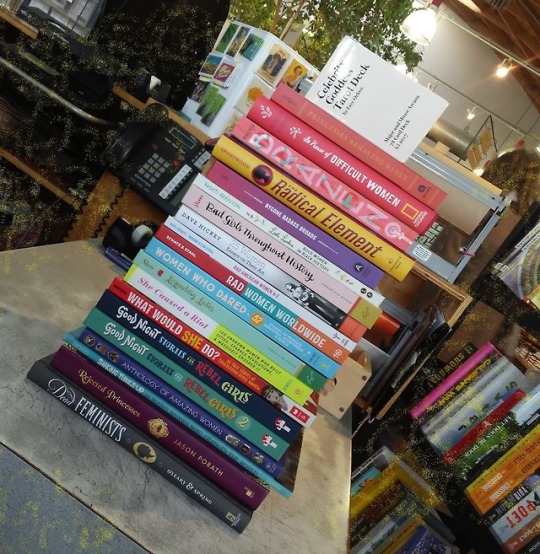
Late last night we gathered all of the new books that we carry that contain lists of
radical/difficult/legendary/badass/bold/brave/bad
girls/women/ladies/leaders/rebels/princesses/goddesses/feminists/heroines
and created a word cloud of all the names that occur in these books. Here it is in long form:
A'isha bint abi Bakr
Abbi Jacobson and Ilana Glazer
Abigail Adams
Ada Blackjack
Ada Lovelace (appears 4 times)
Adina De Zavala
Aditi
Aelfthryth
Aethelflaed
Agatha Christie
Agnodice (appears 3 times)
Agontime and the Dahomey Amazons
Aine
Aisholpan Nurgaiv
Ala
Alek Wek
Alexandra Kollontai
Alexis Smith
Alfhild (appears 2 times)
Alfonsina Strada
Alia Muhammad Baker
Alice Ball (appears 3 times)
Alice Clement
Alice Guy-Blache
Alice Paul
Alicia Alonso
Alma Woodsey Thomas
Althea Gibson
Amal Clooney
Amalia Eriksson
Amanda Stenberg
Amaterasu
Amba/Sikhandi
Ameenah Gurib-Fakim
Amelia Earhart (appears 4 times)
Amna Al Haddad
Amy Poehler (appears 2 times)
Amy Winehouse
Ana Lezama de Urinza
Ana Nzinga
Anais Nin
Andamana
Andree Peel
Angela Davis (appears 3 times)
Angela Merkel (appears 2 times)
Angela Morley
Angela Zhang
Angelina Jolie
Anita Garibaldi (appears 3 times)
Anita Roddick
Ann Hamilton
Ann Makosinski
Anna Atkins
Anna May Wong
Anna Nicole Smith
Anna of Saxony
Anna Olga Albertina Brown
Anna Politkovskaya
Anna Wintour
Anna-Marie McLemore
Anne Bonny
Anne Hutchinson
Anne Lister
Annette Kellerman (appears 3 times)
Annie "Londonderry" Cohen Kopchovsky
Annie Edson Taylor
Annie Edson Taylor
Annie Jump Cannon (appears 3 times)
Annie Oakley (appears 2 times)
Annie Smith Peck
Aphra Behn
Aphrodite
Arawelo
Aretha Franklin
Artemis
Artemisia Gentileschi (appears 4 times)
Artemisis I of Caria
Ashley Fiolek
Astrid Lindgren
Athena
Aud the Deep-Minded
Audre Lorde
Audrey Hepburn
Augusta Savage
Aung San Suu Kyi (appears 2 times)
Azucena Villaflor
Babe Zaharias
Barbara Bloom
Barbara Hillary
Barbara Walters
Bast
Bastardilla
Beatrice Ayettey
Beatrice Potter Webb
Beatrice Vio
Beatrix Potter
Beatrix Potter
Belle Boyd
Belva Lockwood
Benten
Bessie Coleman (appears 2 times)
Bessie Stringfield
Bettie Page
Betty Davis
Betty Friedan
Beyonce (appears 3 times)
Billie Holiday
Billie Jean King (appears 3 times)
Birute Mary Galdikis
Black Mambas
Blakissa Chaibou
Bonnie Parker
Boudicca (appears 3 times)
Brenda Chapman
Brenda Milner
Bridget Riley
Brie Larson
Brigid of Kildare
Brigit
Britney Spears
Bronte Sisters
Buffalo Calf Road Woman (appears 2 times)
Buffy Sainte-Marie
Calafia
Caraboo
Carly Rae Jepsen
Carmen Amaya
Carmen Miranda
Carol Burnett
Caroline of Brunswick-Wolfenbuttel
Carrie Bradshaw
Carrie Fisher (appears 2 times)
Caterina Sforza
Catherine Radziwill
Catherine the Great (appears 3 times)
Cecilia Payne-Gaposchkin
Celia Cruz
Chalchiuhtlicue
Chang-o
Charlotte E Ray
Charlotte of Belgium
Charlotte of Prussia
Cher
Cheryl Bridges
Chien-Shiung Wu
Chimamanda Ngozi Adichie (appears 3 times)
Chiyome Mochizuki
Cholita Climbers
Chrissy Teigen
Christina
Christina of Sweden
Christine de Pizan
Christine Jorgensen (appears 2 times)
Clara Rockmore
Clara Schumann
Clara Ward
Claudia Ruggerini
Clelia Duel Mosher
Clemantine Wamariya
Clementine Delait
Cleopatra (appears 3 times)
Coccinelle
Coco Chanel (appears 2 times)
Constance Markievicz
Cora Coralina
Coretta Scott King
Corrie Ten Boom
Courtney Love
Coy Mathis
Creiddylad
Daenerys Targaryen
Dahlia Adler
Daisy Kadibill
Dame Katerina Te Heikoko Mataira
Delia Akeley
Demeter
Dhat al-Himma
Dhonielle Clayton
Diana Nyad
Diana Ross
Diana Vreeland (appears 2 times)
Dixie Chicks
Dolly Parton (appears 2 times)
Dolores Huerta
Dominique Dawes
Dona Ana Lezama de Urinza and Dona Eustaquia de Sonza
Dorothy Arzner
Dorothy Dandridge
Dorothy Thompson
Dorothy Vaughan
Dr. Eugenie Clark
Dr. Jane Goodall (appears 3 times)
Durga
Edie Sedgwick
Edith Garrud
Edith Head
Edith Wharton
Edmonia Lewis
Eleanor of Aquitaine
Eleanor Roosevelt (appears 3 times)
Elena Cornaro Piscopia
Elena Piscopia
Elinor Smith
Elisabeth Bathory
Elisabeth of Austria
Elizabeth Bisland
Elizabeth Blackwell
Elizabeth Cady Stanton
Elizabeth Hart
Elizabeth I (appears 3 times)
Elizabeth Murray
Elizabeth Peyton
Elizabeth Taylor
Elizabeth Warren
Elizabeth Zimmermann
Elizsabeth Vigee-Lebrun
Ella Baker
Ella Fitzgerald
Ella Hattan
Elle Fanning
Ellen Degeneres
Elsa Schiaparelli
Elvira de la Fuente Chaudoir
Emily Warren Roebling
Emma "Grandma" Gatewood
Emma Goldman (appears 2 times)
Emma Watson (appears 2 times)
Emmeline Pankhurst (appears 3 times)
Emmy Noether (appears 3 times)
Empress Myeongseong
Empress Theodora (appears 2 times)
Empress Wu Zetian (appears 2 times)
Empress Xi Ling Shi
Enheduanna
Eniac Programmers
Eos
Erin Bowman
Estanatlehi
Ethel Payne
Eufrosina Cruz
Eustaquia de Souza
Eva Peron (appears 3 times)
Fadumo Dayib
Faith Bandler
Fannie Farmer (appears 2 times)
Fanny Blankers-Koen
Fanny Bullock Workman
Fanny Cochrane Smith
Fanny Mendelssohn
Fatima al-Fihri (appears 3 times)
Fe Del Mundo
Ferminia Sarras
Fiona Banner
Fiona Rae
Florence Chadwick (appears 2 times)
Florence Griffith-Joyner (appears 2 times)
Florence Nightingale (appears 4 times)
Frances E. W. Harper
Frances Glessner Lee
Frances Moore Lappe
Franziska
Freya
Frida Kahlo (appears 7 times)
Friederike Mandelbaum
Funmilayo Ransome Kuti (appears 2 times)
Gabriela Brimmer
Gabriela Mistral
Gae Aulenti
Gaia
George Sand
Georgia "Tiny" Broadwick
Georgia O'Keefe (appears 3 times)
Gertrude Bell
Gerty Cori
Gilda Radner
Girogina Reid
Giusi Nicolini
Gladys Bentley
Gloria Steinem (appears 3 times)
Gloria von Thurn
Grace "Granuaile" O'Malley
Grace Hopper
Grace Jones
Grace O'Malley (appears 3 times)
Gracia Mendes Nasi
Gracie Fields
Grimke Sisters
Guerrilla Girls
Gurinder Chadha
Gwen Ifill
Gwendolyn Brooks (appears 2 times)
Gypsy Rose Lee
Hannah Arendt
Harriet Beecher Stowe
Harriet Tubman (appears 6 times)
Hathor
Hatshepsut (appears 7 times)
Hazel Scott
Hecate
Hedy Lamarr (appears 5 times)
Heidi Montag and Spencer Pratt
Hel
Helen Gibson
Helen Gurley Brown (appears 2 times)
Helen Keller (appears 2 times)
Hildegard von Bingen
Hillary Rodham Clinton (appears 2 times)
Hina
Hortense Mancini
Hortensia
Hsi Wang Mu
Huma Abedin
Hung Liu
Hypatia (appears 4 times)
Iara
Ida B. Wells (appears 3 times)
Ida Lewis
Imogen Cunningham
Irena Sendler (appears 3 times)
Irena Sendlerowa
Irene Joliot-Curie
Isabel Allende
Isabella of France
Isabella Stewart Gardner
Isadora Duncan (appears 2 times)
Isis
Iva Toguri D'Aquino
Ixchel
J.K. Rowling (appears 3 times)
Jackie Mitchell
Jacqueline and Eileen Nearne
Jacquotte Delahaye
Jane Austen (appears 2 times)
Jane Dieulafoy
Jane Mecom
Jang-geum
Janis Joplin
Jayaben Desai
Jean Batten
Jean Macnamara
Jeanne Baret (appears 3 times)
Jeanne De Belleville
Jennifer Aniston
Jennifer Steinkamp
Jenny Lewis
Jesselyn Radack
Jessica Spotswood
Jessica Watson
Jezebel
Jill Tarter
Jind Kaur
Jingu
Joan Bamford Fletcher
Joan Beauchamp Procter
Joan Jett (appears 2 times)
Joan Mitchell
Joan of Arc (appears 3 times)
Jodie Foster
Johanna July
Johanna Nordblad
Josefina "Joey" Guerrero
Josephina van Gorkum
Josephine Baker (appears 7 times)
Jovita Idar (appears 2 times)
Juana Azurduy
Judit Polgar
Judy Blume
Julia Child (appears 2 times)
Julia de Burgos
Julie "La Maupin" d'Abigny (appears 3 times)
Julie Dash
Juliette Gordon Low
Junko Tabei (appears 4 times)
Justa Grata Honoria
Ka'ahumanu
Kali
Kalpana Chawla
Karen Carson
Kasha Jacqueline Nabagesera
Kat Von D
Kate Bornstein
Kate Sheppard
Kate Warne
Katherine Hepburn
Katherine Johnson (appears 2 times)
Kathrine Switzer
Katia Krafft (appears 2 times)
Katie Sandwina
Kay Thompson
Keiko Fukuda
Keumalahayati
Kharboucha
Khawlah bint al-Azwar
Khayzuran
Khoudia Diop
Khutulun (appears 5 times)
Kim Kardashian
King Christina of Sweden
Kosem Sultan
Kristen Stewart
Kristin Wig
Kuan Yin
Kumander Liwayway
Kurmanjan Dtaka
Lady Godiva
Lady Margaret Cavendish
Laka
Lakshmibai, Rani of Jhansi (appears 5 times)
Lana Del Rey
Las Mariposas
Laskarina Bouboulina (appears 2 times)
Laura Redden Searing
Lauren Potter
Laverne Cox (appears 2 times)
Lee Miller
Lella Lombardi
Lena Dunham
Leo Salonga
Leymah Gbowee (appears 2 times)
Libby Riddles
Lieu Hanh
Lil Kim
Lili'uokalani
Lilian Bland (appears 3 times)
Lilith
Lillian Boyer
Lillian Leitzel
Lillian Ngoyi
Lillian Riggs
Lindsay Lohan
Liv Arensen and Ann Bancroft
Lorde
Lorena Ochoa
Lorna Simpson
Lorraine Hansberry
Lotfia El Nadi
Louisa Atkinson
Louise Mack
Lowri Morgan
Lozen (appears 3 times)
Lucille Ball
Lucrezia
Lucy Hicks Anderson
Lucy Parsons
Luisa Moreno
Luo Dengping
Lyda Conley
Lynda Benglis
Ma'at
Mackenzi Lee
Madam C.J. Walker (appears 3 times)
Madame Saqui
Madia Comaneci
Madonna (appears 3 times)
Madres de Plaza de Mayo
Mae C. Jemison
Mae Emmeline Wirth
Mae Jemison (appears 3 times)
Mae West
Mahalia Jackson
Mai Bhago
Malala Yousafzai (appears 7 times)
Malinche (appears 2 times)
Mamie Phipps Clark
Manal al-Sharif
Marcelite Harris
Margaret
Margaret "Molly" Tobin Brown
Margaret Bourke-White
Margaret Cho
Margaret Hamilton (appears 2 times)
Margaret Hardenbroeck Philipse
Margaret Sanger
Margaret Thatcher (appears 2 times)
Margery Kempe
Margherita Hack
Marguerite de la Rocque
Maria Callas
Maria Mitchell
Maria Montessori (appears 2 times)
Maria Reiche
Maria Sibylla Merian
Maria Tallchief
Maria Vieira da Silva
Mariah Carey
Marian Anderson
Marie Antoinette
Marie Chauvet
Marie Curie (appears 5 times)
Marie Duval
Marie Mancini
Marie Marvingt
Marie Tharp
Marieke Nijkamp
Marina Abramovic
Mariya Oktyabrskaya (appears 2 times)
Marjana
Marlene Sanders
Marta
Marta Vieira da Silva
Martha Gelhorn
Martha Graham
Mary Anning (appears 5 times)
Mary Blair
Mary Bowser (appears 3 times)
Mary Edwards Walker (appears 2 times)
Mary Eliza Mahoney
Mary Fields (appears 2 times)
Mary Heilmann
Mary Jackson (appears 2 times)
Mary Kate and Ashley Olsen
Mary Kingsley
Mary Kom
Mary Lacy
Mary Lillian Ellison
Mary Pickford
Mary Quant
Mary Seacole (appears 3 times)
Mary Shelley
Mary Wollstonecraft (appears 2 times)
Maryam Mirzakhani
Mata Hari (appears 3 times)
Matilda of Canossa
Matilda of Tuscany
Matilde Montoya
Maud Stevens Wagner
Maya Angelou (appears 4 times)
Maya Gabeira
Maya Lin (appears 2 times)
Mazu
Meg Medina
Megan Shepherd
Melba Liston
Mercedes de Acosta
Merritt Moore
Meryl Streep
Micaela Bastidas
Michaela Deprince
Michelle Fierro
Michelle Obama (appears 3 times)
Mildred Burke
Miley Cyrus
Millo Castro Zaldarriaga
Mina Hubbard
Minnie Spotted Wolf
Mirabal Sisters (appear 2 times)
Miriam Makeba (appears 3 times)
Missy Elliot
Misty Copeland
Mochizuki Chiyome
Moll Cutpurse
Molly Kelly
Molly Williams
Moremi Ajasoro
Murasaki Shikibu (appears 3 times)
Nadia Murad
Nadine Gordimer
Nakano Takeko
Nana Asma'u (appears 2 times)
Nancy Rubins
Nancy Wake (appears 2 times)
Naomi Campbell
Naziq al-Abid
Neerja Bhanot
Nefertiti
Nell Gwyn
Nellie Bly (appears 8 times)
Nettie Stevens (appears 2 times)
Nichelle Nichols
Nicki Minaj
Nicole Richie
Nina Simone (appears 2 times)
Njinga of Angola
Njinga of Ndongo
Noor Inayat Khan (appears 3 times)
Nora Ephron (appears 3 times)
Norma Shearer
North West
Nuwa
Nwanyeruwa (appears 2 times)
Nyai Loro Kidul
Nzinga
Nzinga Mbande
Octavia E Butler
Odetta
Olga of Kiev (appears 2 times)
Olivia Benson
Olympe de Gouges
Oprah Winfrey (appears 5 times)
Osh-Tisch
Oshun
Oya
Pancho Barnes
Paris Hilton
Parvati
Patti Smith (appears 2 times)
Pauline Bonaparte
Pauline Leon
Peggy Guggenheim (appears 2 times)
Pele
Petra "Pedro" Herrera
Phillis Wheatley
Phoolan Devi
Phyllis Diller
Phyllis Wheatley
Pia Fries
Pingyang
Policarpa "La Pola" Salavarrieta
Policarpa Salavarrieta (appears 2 times)
Poly Styrene
Poorna Malavath
Pope Joan
Portia De Rossi and Ellen Degeneres
Princess Caraboo
Princess Diana
Princess Sophia Duleep Singh
Psyche
Pura Belpre
Qiu Jin (appears 3 times)
Queen Arawelo
Queen Bessie Coleman
Queen Lili'uokalani (appears 2 times)
Queen Nanny of the Maroons (appears 4 times)
Quintreman Sisters
Rachel Carson (appears 4 times)
Rachel Maddow
Raden Ajeng Kartini
Ran
Rani Chennamma
Rani Lakshmibai
Rani of Jhansi
Raven Wilkinson
Rebecca Lee Crumpler
Rhiannon
Rigoberta Menchu Tum
Rihanna
Rita Levi Montalcini (appears 2 times)
Robina Muqimyar
Roni Horn
Rosa Luxemburg
Rosa Parks (appears 4 times)
Rosalind Franklin
Rosaly Lopes
Rose Fortune
Rowan Blanchard
Roxolana
Ruby Nell Bridges (appears 3 times)
Rukmini Devi Arundale
Rupaul
Ruth Bader Ginsburg (appears 3 times)
Ruth Harkness
Ruth Westheimer
Rywka Lipszyc
Sadako Sasaki
Sally Ride
Samantha Christoforetti
Sappho (appears 3 times)
Sara Farizan
Sara Seager
Sarah Breedlove
Sarah Charlesworth
Sarah Winnemucca
Saraswati
Sarinya Srisakul
Sarojini Naidu
Sarvenaz Tash
Sayyida al-Hurra (appears 2 times)
Sekhmet
Selda Bagcan
Selena
Seondeok of Silla (appears 2 times)
Serafina Battaglia
Serena Williams (appears 4 times)
Shajar al-Durr
Shamsia Hassani
Sharon Ellis
Sheryl Crow
Sheryl Sandberg
Shirely Chisolm (appears 2 times)
Shirley Muldowney
Shonda Rhimes (appears 2 times)
Simone Biles (appears 2 times)
Simone de Beauvoir
Simone Veil
Sister Corita Kent
Sita
Sky Brown
Sofia Ionescu
Sofia Perovskaya
Sofka Dolgorouky
Sojourner Truth (appears 5 times)
Solange
Sonia Sotomayor (appears 2 times)
Sonita Alizadeh (appears 2 times)
Sophia Dorothea
Sophia Loren
Sophie Blanchard
Sophie Scholl (appears 3 times)
Sor Juana Ines de la Cruz (appears 2 times)
Sorghaghtani Beki
Spider Woman
Stacey Lee
Stagecoach Mary Fields (appears 2 times)
Steffi Graf
Stephanie Kwolek
Stephanie von Hohenlohe
Stevie Nicks
Subh
Susa La Flesche Picotte
Susan B. Anthony
Susan La Flesche Picotte
Sybil Ludington (appears 3 times)
Sybilla Masters
Sylvia Earle (appears 3 times)
Tallulah Bankhead
Tamara de Lempicka
Tara
Tarabai Shinde
Tatterhood
Taylor Swift
Te Puea Herangi (appears 2 times)
Temple Grandin (appears 3 times)
Teresita Fernandez
Mirabal Sisters
Muses
Night Witches
Shaggs
Stateless
Thea Foss
Therese Clerc
Tin Hinan
Tina Fey (appears 2 times)
TLC
Tomoe Gozen (appears 2 times)
Tomyris (appears 2 times)
Tonya Harding
Tove Jansson (appears 2 times)
Troop 6000
Trung Sisters
Trung Trac and Trung Nhi (appear 2 times together)
Tyche
Tyler Moore
Tyra Banks
Ulayya bint al-Mahdi
Umm Kulthum
Ursula K. LeGuin
Ursula Nordstrom
Valentina Tereshkova (appears 5 times)
Valerie Thomas
Vanessa Beecroft
Venus Williams (appears 2 times)
Victoria Beckham
Vija Celmins
Viola Davis
Viola Desmond
Violeta Parra
Virginia Apgar
Virginia Hall
Virginia Woolf (appears 3 times)
Vita Sackville-West
Vivian Maier
Wallada bint al-Mustakfi (appears 2 times)
Wang Zhenyi (appears 2 times)
Wangari Maathai (appears 3 times)
Washington State Suffragists
Whina Cooper
Willow Smith
Wilma Mankiller
Wilma Rudolph (appears 3 times)
Winona Ryder
Wislawa Szymborska
Wu Mei
Wu Zetian (appears 3 times)
Xian Zhang
Xochiquetzal
Xtabay
Yaa Asantewaa (appears 3 times)
Yael
Yani Tseng
Yayoi Kusama
Yemoja
Yennenga
Yeonmi Park
Ynes Mexia
Yoko Ono
Yoshiko Kawashima
Yuri Kochiyama
Yusra Mardini
Zabel Yesayan
Zaha Hadid (appears 2 times)
Zenobia
Zoe Kravitz
Zora Neale Hurston (appears 2 times)
#publishing#lists#women#ladies#girls#princesses#goddesses#daredevils#adventurers#broads#feminists#heroines#trailblazers
11 notes
·
View notes
Text
Angelina Weld Grimké
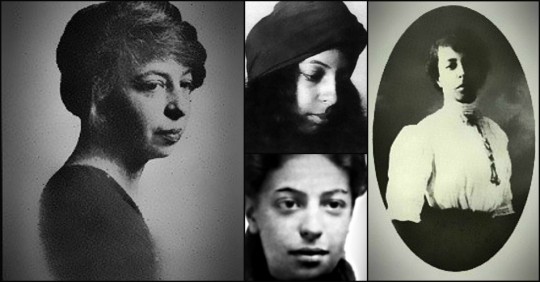
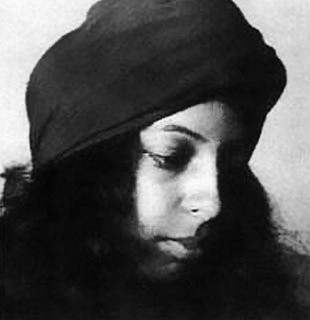



Angelina Weld Grimké (February 27, 1880 – June 10, 1958) was an American journalist, teacher, playwright and poet who came to prominence during the Harlem Renaissance. She was one of the first Woman of Colour/Interracial women to have a play publicly performed.
Life and career
Angelina Weld Grimké was born in Boston, Massachusetts, in 1880 to a biracial family. Her father, Archibald Grimké, was a lawyer and also of mixed race, son of a white planter. He was the second African American to have graduated from Harvard Law School. Her mother, Sarah Stanley, was European American from a Midwestern middle-class family. Information about her is scarce.
Grimké's parents met in Boston, where he had established a law practice. Angelina was named for her father's paternal white aunt Angelina Grimké Weld, who with her sister Sarah Grimké had brought him and his brothers into her family after learning about them after his father's death. (They were the "natural" mixed-race sons of her late brother, also one of the wealthy white Grimké planter family.)
When Grimké and Sarah Stanley married, they faced strong opposition from her family, due to concerns over race. The marriage did not last very long. Soon after their daughter Angelina's birth, Sarah left Archibald and returned with the infant to the Midwest. After Sarah began a career of her own, she sent Angelina, then seven, back to Massachusetts to live with her father. Angelina Grimké would have little to no contact with her mother after that. Sarah Stanley committed suicide several years later.
Angelina's paternal grandfather was Henry Grimké, of a large and wealthy slaveholding family based in Charleston, South Carolina. Her paternal grandmother was Nancy Weston, an enslaved woman of mixed race, with whom Henry became involved as a widower. They lived together and had three sons: Archibald, Francis and John (born after his father's death in 1852); they were majority white in ancestry. Henry taught Nancy and the boys to read and write. Among Henry's family were two sisters who had opposed slavery and left the South before he began his relationship with Weston; Sarah and Angelina Grimké became notable abolitionists in the North. The Grimkés were also related to John Grimké Drayton of Magnolia Plantation near Charleston, South Carolina. South Carolina had laws making it difficult for an individual to manumit slaves, even their own children born into slavery. Instead of trying to gain the necessary legislative approval for each manumission, wealthy fathers often sent their children north for schooling to give them opportunities, and hoping they would stay to live in a free state.
Angelina's uncle, Francis J. Grimké, graduated from Lincoln University, PA and Princeton Theological Seminary. He became a Presbyterian minister in Washington, DC. He married Charlotte Forten. She became known as an abolitionist and diarist. She was from a prominent family of color in Philadelphia who were strong abolitionists.
From the ages of 14 to 18, Angelina lived with her aunt and uncle, Charlotte and Francis, in Washington, DC and attended school there. During this period, her father was serving as US consul (1894 and 1898) to the Dominican Republic. Indicating the significance of her father's consulship in her life, Angelina later recalled, "it was thought best not to take me down to [Santo Domingo] but so often and so vivid have I had the scene and life described that I seem to have been there too."
Angelina Grimké attended the Boston Normal School of Gymnastics, which later developed as the Department of Hygiene of Wellesley College. After graduating, she and her father moved to Washington, D.C. to be with his brother Francis and family.
In 1902, Grimké began teaching English at the Armstrong Manual Training School, a black school in the segregated system of the capitol. In 1916 she moved to a teaching position at the Dunbar High School for black students, renowned for its academic excellence, where one of her pupils was the future poet and playwright May Miller. During the summers, Grimké frequently took classes at Harvard University, where her father had attended law school.
Around 1913, Grimké was involved in a train crash which left her health in a precarious state. After her father took ill in 1928, she tended to him until his death in 1930. Afterward, she left Washington, DC, for New York City, where she settled in Brooklyn. She lived a quiet retirement as a semi-recluse. She died in 1958.
Literary career
Grimké wrote essays, short stories and poems which were published in The Crisis, the newspaper of the NAACP, edited by W.E.B. Du Bois; and Opportunity. They were also collected in anthologies of the Harlem Renaissance: The New Negro, Caroling Dusk, and Negro Poets and Their Poems. Her more well-known poems include "The Eyes of My Regret", "At April", "Trees" and "The Closing Door". While living in Washington, DC, she was included among the figures of the Harlem Renaissance, as her work was published in its journals and she became connected to figures in its circle. Some critics place her in the period before the Renaissance. During that time, she counted the poet Georgia Douglas Johnson as one of her friends.
Grimké wrote Rachel – originally titled Blessed Are the Barren – one of the first plays to protest lynching and racial violence. The three-act drama was written for the National Association for the Advancement of Colored People (NAACP), which called for new works to rally public opinion against D. W. Griffith's recently released film, The Birth of a Nation (1915), which glorified the Ku Klux Klan and portrayed a racist view of blacks and of their role in the American Civil War and Reconstruction in the South. Produced in 1916 in Washington, D.C., and subsequently in New York City, Rachel was performed by an all-black cast. Reaction to the play was good. The NAACP said of the play: "This is the first attempt to use the stage for race propaganda in order to enlighten the American people relating to the lamentable condition of ten millions of Colored citizens in this free republic."
Rachel portrays the life of an African-American family in the North in the early 20th century. Centered on the family of the title character, each role expresses different responses to the racial discrimination against blacks at the time. The themes of motherhood and the innocence of children are integral aspects of Grimké's work. Rachel develops as she changes her perceptions of what the role of a mother might be, based on her sense of the importance of a naivete towards the terrible truths of the world around her. A lynching is the fulcrum of the play.
The play was published in 1920, but received little attention after its initial productions. In the years since, however, it has been recognized as a precursor to the Harlem Renaissance. It is one of the first examples of this political and cultural movement to explore the historical roots of African Americans.
Grimké wrote a second anti-lynching play, Mara, parts of which have never been published. Much of her fiction and non-fiction focused on the theme of lynching, including the short story, "Goldie." It was based on the 1918 lynching in Georgia of Mary Turner, a married black woman who was the mother of two children and pregnant with a third.
Sexuality
At the age of 16, Grimké wrote to a friend, Mary P. Burrill:
I know you are too young now to become my wife, but I hope, darling, that in a few years you will come to me and be my love, my wife! How my brain whirls how my pulse leaps with joy and madness when I think of these two words, 'my wife'"
Two years earlier, in 1903, Grimké and her father had a falling out when she told him that she was in love. Archibald Grimké responded with an ultimatum demanding that she choose between her lover and himself. Grimké family biographer Mark Perry speculates that the person involved may have been female, and that Archibald may already have been aware of Angelina's sexual leaning.
Analysis of her work by modern literary critics has provided strong evidence that Grimke was lesbian or bisexual. Some critics believe this is expressed in her published poetry in a subtle way. Scholars found more evidence after her death when studying her diaries and more explicit unpublished works. The Dictionary of Literary Biography: African-American Writers Before the Harlem Renaissance states: "In several poems and in her diaries Grimké expressed the frustration that her lesbianism created; thwarted longing is a theme in several poems." Some of her unpublished poems are more explicitly lesbian, implying that she lived a life of suppression, "both personal and creative.”
Wikipedia
3 notes
·
View notes
Photo


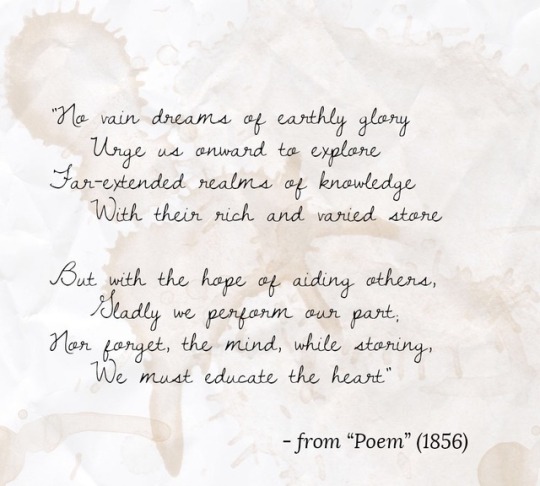

The most recent “Where are OUR Journals?” exploration, poet, letter-writer (her penpal was poet John Greenlead Whittier), [Black] abolitionist, and diarist Charlotte Forten Grimke (1837-1914). Forten Grimke’s journals hold her everyday encounters with/frustrated thoughts on racism, her poems (she was amazing but the white world shut her out), and later, short notes on her frequent illnesses in a marriage one can safely assume was void of intimacy. If Charlotte’s health hadn’t have failed her so early in her life, it would have been amazing to see how her sociocultural navigations through a post-slavery society and unbalanced relationship with her husband changed her poems and journal entries. She would have filled more journals.
3 notes
·
View notes
Photo

RP from Smithsonian National Museum African American History and Culture #NMAAHC #OnThisDay 100 years ago, the 19th Amendment was ratified, formally granting women the right to vote. African American women were largely excluded from the growing women’s suffrage movement because of their race. Early suffragettes like Mary Church Terrell and Charlotte Forte Grimke took up the cause, despite the racism they faced. In 1913, Ida B. Wells formed the Alpha Suffrage Club, believed to be the first organization focused on African American women’s suffrage in the United States. After the passage of the 19th Amendment, African American women still faced barriers exercising their right to vote. This could include waiting hours to register, facing violence, or taking new tests. It took 95 years—3 generations of African American voters—after the 1870 Enforcement Acts, before Congress would enforce equal voting rights for African American men and women, with the passage of the 1965 Voting Rights Act. In 2013, SCOTUS struck down a provision of the 1965 Voting Rights Act, holding that the racist practices which necessitated the law no longer present a problem. #APeoplesJourney #ANationsStory #HiddenHerstory https://www.instagram.com/p/CECM0KKJE8H/?igshid=1xtb4jzx1ztox
1 note
·
View note
Photo
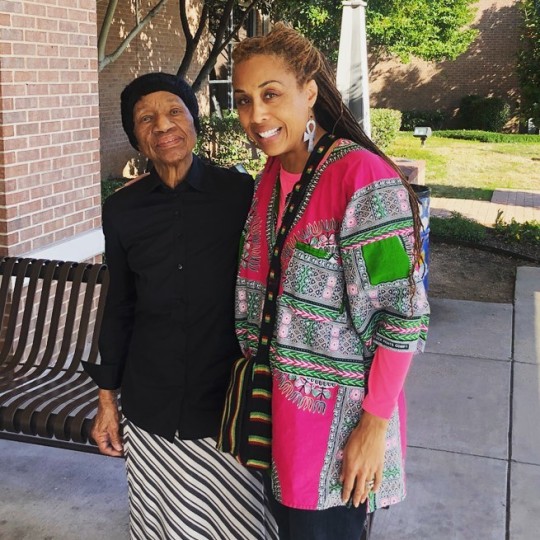
This is #BlackHistory • It was an honor to meet 90 year old Ms. White (who moves better than most 30 year olds) at the voting poll yesterday, she too is a Louisiana native! I was one year old when she was granted the right to vote as a African American Woman! Ms. White and her 82 year old sister were both out to exercise their rights to vote! • 👇🏾👇🏾👇🏾 Facts on African American Women and voting • Black reformers like Josephine St. Pierre Ruffin and Charlotte Forten Grimke founded the National Association of Colored Women (NACW) in 1896. During their meetings at the Charles Street Meeting House, members discussed ways of attaining civil rights and women’s suffrage. The NACW’s motto, “Lifting as we climb,” reflected the organization’s goal to “uplift” the status of Black women. In 1913, Ida B. Wells founded the Alpha Suffrage Club of Chicago, the nation's first Black women's club focused specifically on suffrage. After the Nineteenth Amendment was ratified in 1920, Black women voted in elections and held political offices. However, many states passed laws that discriminated against African Americans and limited their freedoms. Black women continued to fight for their rights. Educator and political advisor Mary McLeod Bethune formed the National Council of Negro Women in 1935 to pursue civil rights. Tens of thousands of African Americans worked over several decades to secure suffrage, which occurred when the Voting Rights Act passed in 1965. This Act represents more than a century of work by Black women to make voting easier and more equitable. #Vote #elections #Suffrage #womensrights #BlackWomen #AfricanAmerican #Polls #Voting # https://www.instagram.com/p/B9LFAkRJUen/?igshid=75eik4ttukhx
0 notes
Text
The Invention of Wings

The Invention of Wings by Sue Monk Kidd
Writing at the height of her narrative and imaginative gifts, Sue Monk Kidd presents a masterpiece of hope, daring, the quest for freedom, and the desire to have a voice in the world—and it is now the newest Oprah’s Book Club 2.0 selection.
Hetty “Handful” Grimke, an urban slave in early nineteenth century Charleston, yearns for life beyond the suffocating walls that enclose her within the wealthy Grimke household. The Grimke’s daughter, Sarah, has known from an early age she is meant to do something large in the world, but she is hemmed in by the limits imposed on women.
Kidd’s sweeping novel is set in motion on Sarah’s eleventh birthday, when she is given ownership of ten year old Handful, who is to be her handmaid. We follow their remarkable journeys over the next thirty five years, as both strive for a life of their own, dramatically shaping each other’s destinies and forming a complex relationship marked by guilt, defiance, estrangement and the uneasy ways of love.
As the stories build to a riveting climax, Handful will endure loss and sorrow, finding courage and a sense of self in the process. Sarah will experience crushed hopes, betrayal, unrequited love, and ostracism before leaving Charleston to find her place alongside her fearless younger sister, Angelina, as one of the early pioneers in the abolition and women’s rights movements.
Inspired by the historical figure of Sarah Grimke, Kidd goes beyond the record to flesh out the rich interior lives of all of her characters, both real and invented, including Handful’s cunning mother, Charlotte, who courts danger in her search for something better.
This exquisitely written novel is a triumph of storytelling that looks with unswerving eyes at a devastating wound in American history, through women whose struggles for liberation, empowerment, and expression will leave no reader unmoved.
Download :
The Invention of Wings The Invention of Wings
More Book at:
Zaqist Book
0 notes
Text
5 You Should Know: Women on the Front Lines of the Civil War
When African American gained the right to serve in the Union Military in January of 1863, thousands of women served alongside them. Tens of thousands of women, both enslaved and free, traveled to the battlefront of the Civil War. Enslaved women journeyed Union lines to free themselves. Once there, they joined northern women who came south to provide much-needed assistance.
Women worked for the Army as nurses; they built fortifications, established schools, served as spies, and even led missions. They also secured food, housing, employment, and medical care for themselves and others. Many of the schools and hospitals established still exist today.
The Community Leader: Susie King Taylor

Photo: Susie King Taylor, black educator and army nurse Aug. 6, 1848 - Oct. 6, 1912.
Susie King Taylor was a nurse, teacher, and community leader on the front lines of the Civil War. At the age of 14, Taylor left her parents to bravely seize her freedom with her uncle’s family by slipping into Union lines in April 1862. Educated in a secret school while enslaved in Savannah, Georgia, Taylor had many skills to offer.
“It seems strange how our aversion to seeing suffering is overcome in war … and instead of turning away, how we hurry to assist in alleviating their pain, bind up their wounds, and press cool water to their parched lips, with feelings only of sympathy and pity.”
Within days of arriving, she began teaching. When Gen. Rufus Saxton began military recruitment of African American men, Taylor joined the 33rd U.S. Colored Infantry as a laundry worker. Traveling with the regiment, she witnessed combat and stepped in to serve as a nurse on the battlefield. Like many African American nurses during the Civil War, Taylor wasn’t compensated for her work. For over three years she served with her husband, Edward King, a sergeant in the regiment.
In 1902, Taylor published a memoir titled, Reminiscences of My Life in Camp. The first and only book of its kind, Taylor shared what it was like for her to serve as an African American nurse during the Civil War.
The Recruiter: Josephine St. Pierre Ruffin
Josephine St. Pierre Ruffin worked for the United States Sanitary Commission and recruited African American Soldiers to serve in the 54th and 55th Massachusetts Infantry Regiments for the Union Army. Born into one of Boston’s leading Black families, Ruffin leveraged her influence and education to become a suffragist, publisher, journalist–––becoming the editor of the Women’s Era, the first publication for and by Black women.
“We are women, American women, as intensely interested in all that pertains to us as such as all other American women; we are not alienating or withdrawing, we are only coming to the front, willing to join any others in the same work and welcoming any others to join us.”
Following the Civil War, Ruffin’s philanthropic efforts put her contact with both black and white leaders such as Booker T. Washington, Susan B. Anthony, William Lloyd Garrison, and Elizabeth Cady Stanton.
The Liberator: Harriet Tubman

Photo: A woodcut image of Harriet Tubman, Scenes in the Life of Harriet Tubman by Sarah H Bradford, woodcut artist not listed; W.J. Moses, printer; stereotyped by Dennis Bro's & Co.
The Civil War enabled Harriet Tubman to extend the Underground Railroad into the Deep South. Joining the Port Royal Relief Association, Tubman worked as a nurse and cemented important relationships with local people. Using these connections, she became the commander of a spy network in January 1863. She led many missions including the June 1863 Combahee River Raid and helped to free hundreds of people. Tubman’s success was built on her ability to tap into local traditions of African American resistance.
The Spy: Mary Elizabeth Bowser
Mary Elizabeth Bowser was a Union spy known for her intellectual abilities and photographic memory. After the start of the Civil War in April 1861, Bowser worked undercover in a spy ring organized by Elizabeth Van Lew, her former enslaver turned abolitionist, as “Ella Bond,” an illiterate house slave in the Confederate White House in Richmond, Va.
In this role, Bowser managed to memorize plans for troop movements, outlines of military strategies, treasury reports, and locations of Union prisoners of war. She quickly became one of the Union’s most successful and credible intelligence sources. Bower was ultimately discovered, but escaped Richmond near the end of the Civil War. Bowser was such a good spy that there are no known photos of her.
The Black Abolitionist: Charlotte Grimke

Phtoto: Charlotte Forten Grimké,
In October 1862, 25-year-old Charlotte Grimke left Massachusetts to join the Port Royal Relief Association in South Carolina. Grimke grew up in an abolitionist household and was well-schooled in equal rights. She believed in racial uplift: the idea that education and refinement proved black equality. However, many southern African American communities were unfamiliar to her, and she struggled with the differences.
#MilitaryAppreciationMonth#HiddenHerStory#APeoplesJourney#NMAAHC#NationalAfricanAmericanMuseumOfHistoryandCulture
144 notes
·
View notes
Link
0 notes